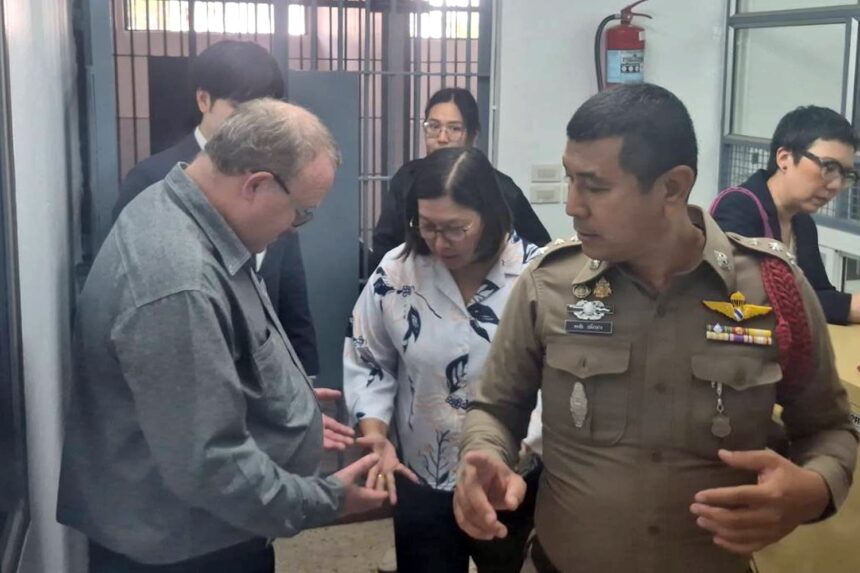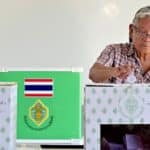PHITSANULOKE – The Public Prosecutors’ Office has announced it dropped all Article 112, lèse majesté and computer crime charges against American academic Dr. Paul Chambers. He was facing up to 15 years in prison for allegedly insulting the Monarchy.
Mr Sakkasem Neesaiyok, the spokesperson for the Office of the Attorney-General, explained that this decision matches the recommendations from a committee set up to guide how the lèse majesté law, Article 112 of the Criminal Code, is enforced.
Dr Chambers, who works at Naresuan University in Phitsanuloke, will now have his case closed.
The public prosecutor will ask the provincial court to release Chambers. The Region 6 Provincial Police Bureau has also been informed about the outcome.
This announcement came a day after the American Political Science Association (APSA) sent an open letter to US Secretary of State Marco Rubio and several members of Congress, urging them to intervene.
Yesterday, the Region 6 Appeals Court ordered the removal of Chambers’ electronic monitoring bracelet and his bail returned.
The Article 112, lèse majesté charge, initially brought forward by the army, prompted protests from both Thai and international human rights groups. Even former prime minister Thaksin Shinawatra suggested these charges might have delayed trade talks between Thai and American officials.
Dr. Paul Chambers is a U.S. academic and lecturer at Naresuan University in Thailand, known for his work on Southeast Asian politics, civil-military relations, and democratization.
Dr Chambers has authored numerous journal articles and book chapters, such as “Camouflaged Khakistocracy: Civil-Military Relations in Thailand” (2020) and contributions to Asian Survey and Contemporary Southeast Asia.
About Article 112 Lese Majeste
Thailand’s lèse-majesté law, found in Article 112 of the Criminal Code, makes it a crime to defame, insult, or threaten the king, queen, heir-apparent, or regent. Each offence carries a prison term of three to fifteen years. The law is among the strictest of its kind, first introduced in 1908 and made tougher in 1976.
Broad language in the law means it can be used in many ways, giving officials the power to act against critics. This includes activists, politicians, scholars, and regular people. Since 2020, more than 270 people have faced charges under this law. Some have received sentences longer than fifty years when charged on several counts, which discourages people from speaking out.
Supporters in Thailand’s conservative, military-aligned circles say the law is needed to protect the monarchy, which holds a special place in Thai society. Opponents see it as a tool to silence those who speak up for democracy or question the monarchy.
Because the law does not clearly explain what counts as an “insult,” authorities can use it however they choose. Anyone can file a complaint, forcing police to investigate, which adds to the pressure on free speech.














